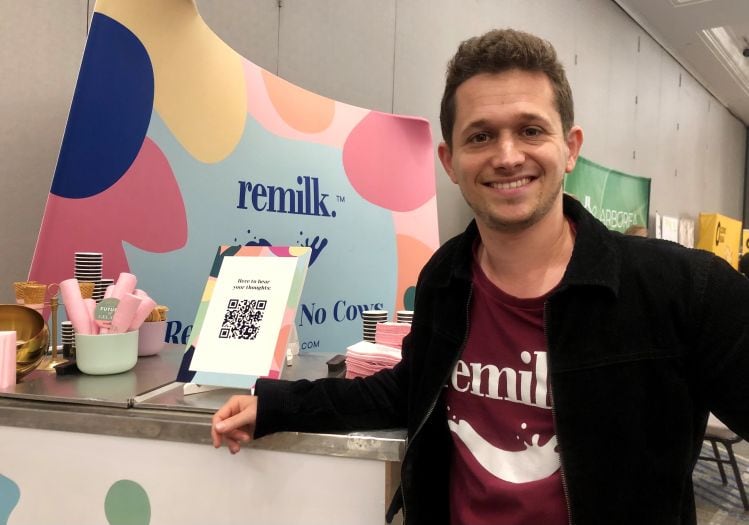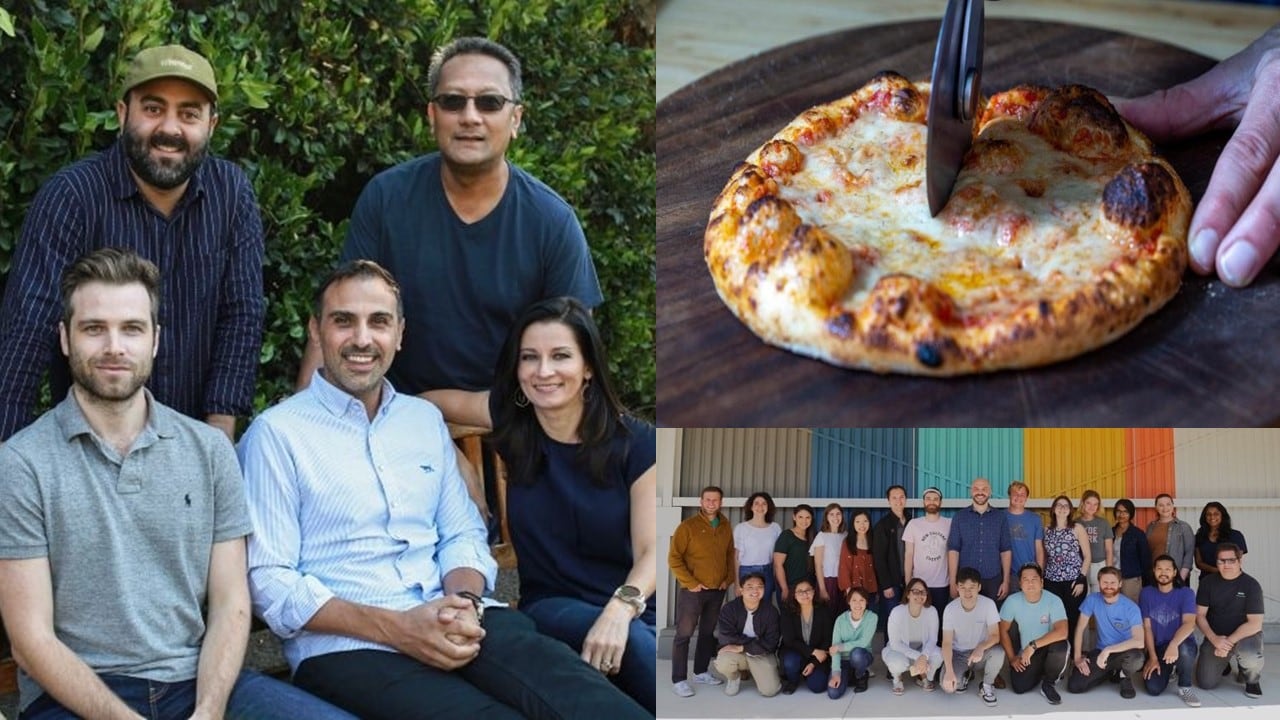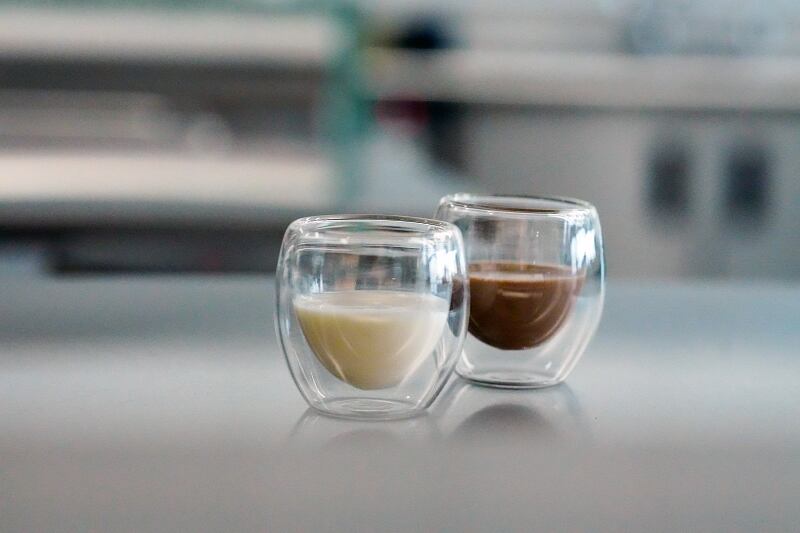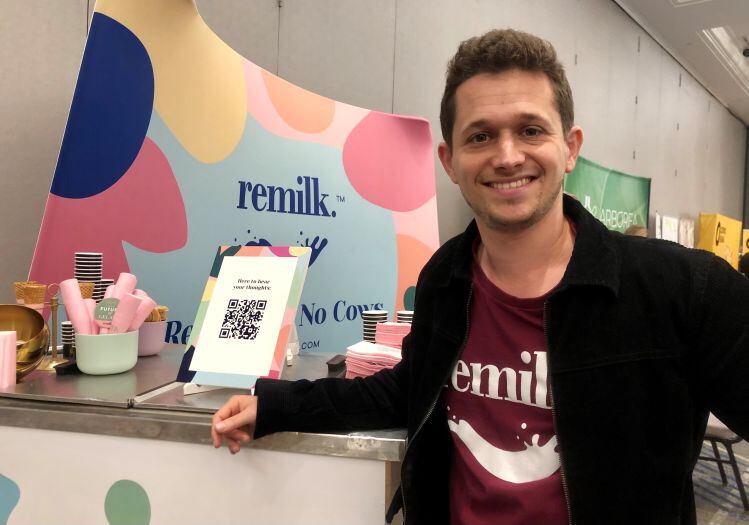“On a high level when we think about cows as production vessels, they have many, many tasks in life that are separate to creating milk proteins,” head of business development Jason Rosenberg explained.
“Cows have to grow, they have to reproduce, they have to walk, they have to eat, they have to build muscle tissue, fat tissue and also create a little bit of milk.
“One of the things we love about microorganisms [which Remilk and others in the emerging ‘animal-free’ arena are programming to produce dairy proteins such as beta-lactoglobulin, alpha lactalbumin, and all four casein proteins] is how inefficient they are at multitasking, which is essentially why they're really good at single tasking, so they know how to do one thing at a time with extreme efficiency and convert one source of energy into one targeted molecule [such as individual dairy proteins].”
Capacity challenges in precision fermentation
Asked about the well-publicized capacity challenges in precision fermentation – whereby firms are deploying synthetic biology to engineer microbes such as fungi, yeast and bacteria to express everything from growth factors for cell-cultured meat to colors, flavors, sweeteners and ‘animal-free’ collagen, whey, and egg albumin – Rosenberg said: “This is one of the one of the primary challenges that we as an industry need to overcome.
“We're in the process of converting a technology of precision fermentation, which has been used for decades in other industries, primarily for pharmaceuticals or enzymes, and these are notoriously high value low volume products, at least in comparison to food products… which are low value and high volume.
“Our primary challenge is scaling the technology for food use. While we rely on existing infrastructure around the globe, most of it was built for that high value, low volume matrix and with specific controls for the pharmaceutical industry that are different than what's necessary for the food industry.
“So while we and the companies around us in our industry utilize those existing, primarily pharmaceutical assets to produce today, through contract manufacturing and co-production partnerships, in the long term, we believe that there needs to be established very large scale tailor made food grade facilities that are that are established for this purpose alone.”
As a result, Remilk is in the process of establishing its own facility in Kalundborg Denmark, that is “tailor made to our very specific needs and for the requirements of the food industry globally,” although it has not yet revealed its ‘non-agricultural source’ of carbon as a feedstock.
“What I can say is that we use and have designed our process from day one, to use extremely available and cost efficient raw materials,” said Rosenberg.
GRAS status
Asked about the regulatory status of Remilk’s dairy proteins (like Perfect Day, it is starting with beta-lactoglobulin, the main whey protein), he said the firm has notified the FDA of its GRAS determination and is awaiting a ‘no questions’ letter.
“So today we are selling product into the US and hope to have products on the shelves for consumers pretty soon through our partners.”
As for the business model, he said: “Remilk is focused on partnering and through this partnership b2b model Remilk is really interested in leveraging what we are very good at, which is producing protein and producing protein efficiently, and then learning how to help CPGs work with that protein to produce finished products.”
No bioengineered labeling: ‘There is no detectable trace of the production organism in that finished product’
So what about labeling? Will Remilk’s dairy proteins – expressed by a genetically engineered yeast strain – require bioengineered labeling in the US market?
No, said Rosenberg. “Through our upstream and downstream processes, we ensure that there is no detectable trace of the production organism in that finished product.”
As for the timetable, he said, Remilk is “already producing at scale through contract manufacturing,” but is aiming to produce from its in-house production site in Denmark within two years.
Upcycling side-streams from precision fermentation process
Asked about side-streams from the production process, he said: “We are in the process of aligning with partners for the commercialization of that product [the spent yeast]…but in addition, we also have certain things that any industrial facility in the world will have, such as wastewater that needs to be cleaned and cleared, but also certain excess streams of steam and heat that can be repurposed in this circular economy by other facilities.
“Not only do we have the ability to feed other facilities [next to the production facility] we can also give back to the public grid for the residential area of Kalundborg as well.”

'We've done something unique by engineering the yeast so that it can digest this specific carbon source'
Speaking to FoodNavigator-USA this summer, Remilk co-founder and CEO Aviv Wolff said: “We estimate we will have cost parity production in Denmark, meaning we're going to sell our proteins at the same price that it costs dairy farmers to produce milk proteins, already in 2024.”
He added: “The yeast we’re using was never used to digest this type of carbon source and we've done something unique by engineering the yeast so that it can digest this specific carbon source. We believe this is a huge advantage we have compared to other companies in the space.
"Each microbial system has its pros and cons when producing recombinant dairy proteins, but we are confident that Remilk’s protein is of remarkable purity and quality, and is cost efficient, which we owe in large part to the incredible capabilities of our proprietary yeast.
“We are working on several different microbial systems. So for each protein we are tailoring a specific system. Sometimes it is yeast, sometimes it's a bacteria or fungus.”
Making casein proteins is more complex, he said, noting that when produced by cows, casein proteins fold up into a spherical ‘micelle’ structure so that the proteins remain suspended indefinitely in the liquid.
“Getting yeast to produce folding proteins, it's not a trivial thing to do. There are ways to overcome those challenges… You also don’t need to be able to make all of the casein proteins. We can use sometimes even only a single subset of protein, and still get the same functional casein micelle that that can be formulated to make mozzarella.
“We're basically trying to mimic the process [that takes place in a cow to produce micelles]. It's a relatively simple process that involves the formulation of minerals and caseins in specific conditions.”
But, he added, “even with whey protein alone, there is a huge opportunity when it comes to soft cheeses, ice cream, yogurt, and milk.”
Animal-free dairy

While it has its detractors, using precision fermentation to make ‘real’ dairy ingredients without cows, argue evangelists, offers the best of both worlds: the nutrition and functionality of dairy ingredients without the ethical and environmental drawbacks of industrialized animal agriculture.
There is no formal definition of ‘animal-free’ dairy, but it typically refers to products made with whey, casein, or dairy fats that are produced without cows, either via genetically engineered microbes such as yeast or fungi that feed on sugars in fermentation tanks; or via genetically engineered crops such as soybeans, corn or peas.
The final proteins are already familiar to the food industry (Remilk's animal-free β-lactoglobulin whey protein, which is expressed by a genetically engineered strain of Komagataella phaffii yeast, for example, is "identical to the β-lactoglobulin present in cow’s milk” according to its GRAS determination).



